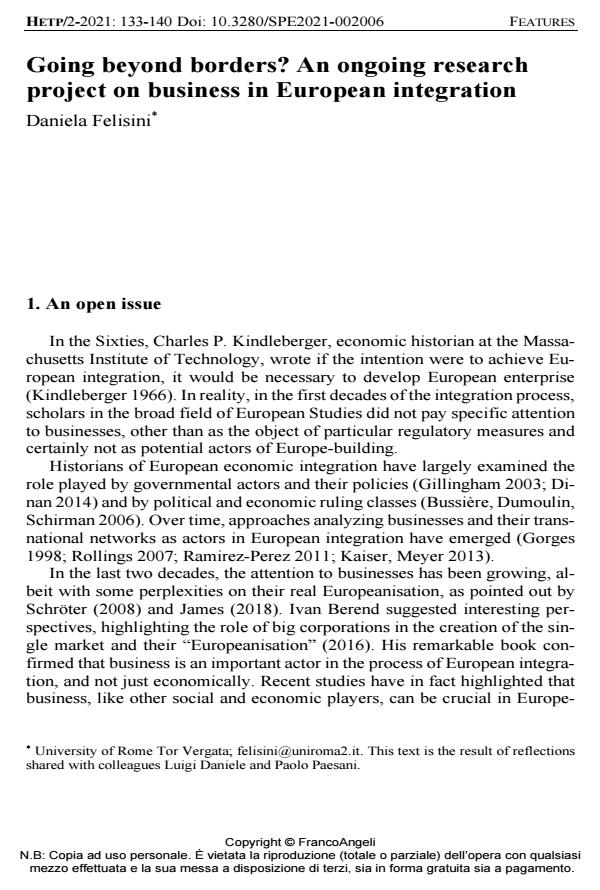Going beyond borders? An ongoing research project on business in European integration
Titolo Rivista HISTORY OF ECONOMIC THOUGHT AND POLICY
Autori/Curatori Daniela Felisini
Anno di pubblicazione 2022 Fascicolo 2021/2
Lingua Inglese Numero pagine 8 P. 133-140 Dimensione file 34 KB
DOI 10.3280/SPE2021-002006
Il DOI è il codice a barre della proprietà intellettuale: per saperne di più
clicca qui
Qui sotto puoi vedere in anteprima la prima pagina di questo articolo.
Se questo articolo ti interessa, lo puoi acquistare (e scaricare in formato pdf) seguendo le facili indicazioni per acquistare il download credit. Acquista Download Credits per scaricare questo Articolo in formato PDF

FrancoAngeli è membro della Publishers International Linking Association, Inc (PILA), associazione indipendente e non profit per facilitare (attraverso i servizi tecnologici implementati da CrossRef.org) l’accesso degli studiosi ai contenuti digitali nelle pubblicazioni professionali e scientifiche.
Daniela Felisini, Going beyond borders? An ongoing research project on business in European integration in "HISTORY OF ECONOMIC THOUGHT AND POLICY" 2/2021, pp 133-140, DOI: 10.3280/SPE2021-002006